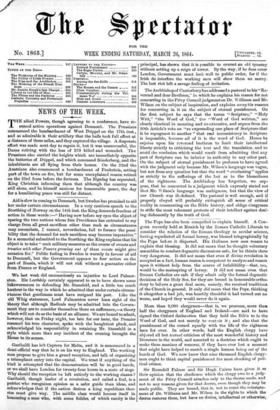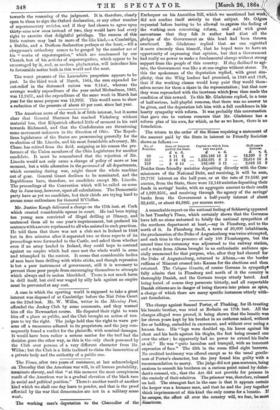Sir Roundel' Palmer and Sir Hugh Cairns have given it
as their opinion that the obedience which the clergy owe to a judg- ment of the Privy Council attaches only to the decree made, and not to any reasons given for that decree, even though they may be made public. They are bound, that is, not to resist the reinstate- ment of Dr. Williams and Mr. Wilson in the rights to which the decree restores them, but have no duties, intellectual or otherwise,- towards the reasoning of the judginent. It is, therefore, clearly open to them to sign the Oxford declaration, or any other number of supernumerary articles, and if they had chosen to agree upon thirty-nine new ones instead of two, Prey would have had every right to exercise that delightful privilege. The success of this little venture may lead to more of the like kind,—a Cambridge, a Dublin, and a Durham declaration perhaps at the least,—till a clergyman's orthodoxy comes to be ganged by the number not of his "works of supererogation," which are condemned by our Church, but of his articles of supererogation, which appear to be encouraged by it, and, as modern phylacteries, will introduce him to favonsahle notice bethin this world and the next.































 Previous page
Previous page